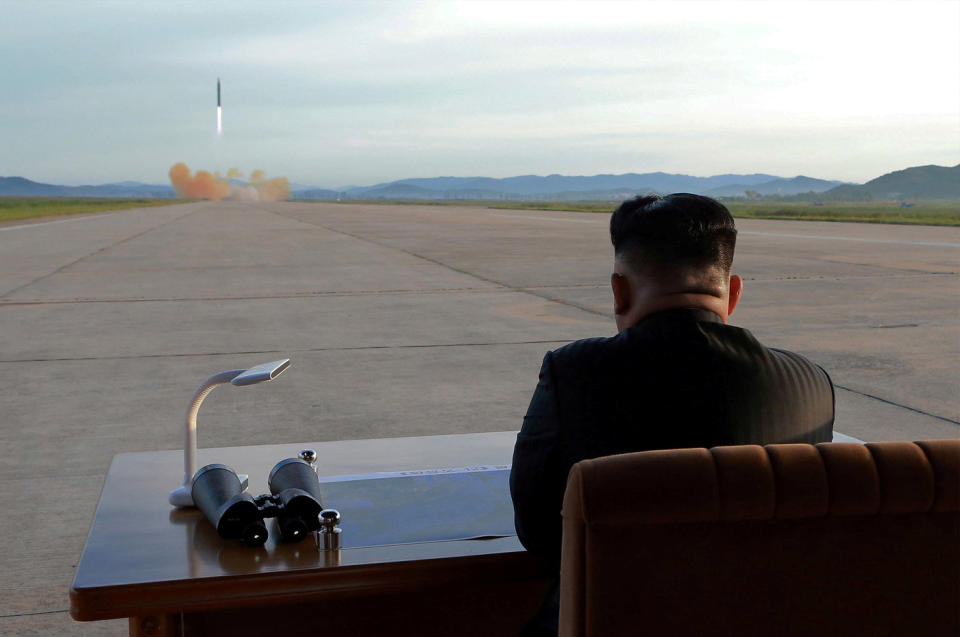5 ways Stephen Hawking predicted the end of mankind

Stephen Hawking, one of history’s greatest scientific minds, has died aged 76 after battling a rare form of motor neurone disease for 50 years.
Despite being wheelchair-bound, almost completely paralysed and unable to speak except through his trademark voice synthesiser, Prof Hawking wrote a plethora of scientific papers that earned him comparisons with Albert Einstein and Sir Isaac Newton.
Diagnosed when he was 22, he was given just a few years to live. Yet against all odds Professor Hawking celebrated his 70th birthday nearly half a century later as one of the most brilliant and famous scientists of the modern age.
Cambridge University paid tribute to him, describing him as “an inspiration to millions” and saying his work will leave “an indelible legacy.”
“Professor Hawking was a unique individual who will be remembered with warmth and affection not only in Cambridge but all over the world.
“His exceptional contributions to scientific knowledge and the popularisation of science and mathematics have left an indelible legacy.”
In his later years, Hawking was particularly outspoken against the problems facing humanity.
Here are five of Hawking’s most strident warnings for the future of mankind.
Hi-tech aliens

Hawking was a vocal opponent of the METI (Messaging Extraterrestrial Intelligence) project, which aims to send messages into space and contact intelligent aliens.
Professor Hawking believed this was a worrying idea, as any aliens hi-tech enough to get our message and travel here may well crush us without mercy.
He said in a 2010 documentary, “If aliens visit us, the outcome would be much as when Columbus landed in America, which didn’t turn out well for the Native Americans.
“We only have to look at ourselves to see how intelligent life might develop into something we wouldn’t want to meet.
“Such advanced aliens would perhaps become nomads, looking to conquer and colonise whatever planets they can reach.”
Mankind’s insatiable appetite
Hawking said the world could turn into a sizzling ‘ball of fire’ by the year 2600 – due to climate change, demands for energy and a soaring population.
Our only hope of survival, he warned, was to escape our planet into space, saying his Breakthrough Starshot project could be the first step on the way.
Speaking at an event in Beijing In November 2017 last year, he said he hoped that tiny spaceships propelled by beams of light could reach Alpha Centauri within his audience’s lifetime.
“Such a system could reach Mars in less than an hour, or reach Pluto in days, pass Voyager in under a week and reach Alpha Centauri in just over 20 years.”
Trump and climate change

Professor Hawking was a vocal critic of Donald Trump (describing him as a ‘demagogue’), and in particular criticised Trump’s stance on climate change.
In this regard, he goes further than many others in how he believes Trump’s policies could leave us.
Hawking told the BBC in July last year, “Trump’s action could push the Earth over the brink, to become like Venus, with a temperature of two hundred and fifty degrees, and raining sulphuric acid.
“Climate change is one of the great dangers we face, and it’s one we can prevent if we act now. By denying the evidence for climate change, and pulling out of the Paris Climate Agreement, Donald Trump will cause avoidable environmental damage to our beautiful planet, endangering the natural world, for us and our children.”
Replaced by robots

Speaking at the Zeitgeist event in London last year, the physicist warned that machines would inevitably overtake human intelligence, and could, in the end, replace us altogether.
“Computers will overtake humans with AI at some within the next 100 years,” he said.
“When that happens, we need to make sure the computers have goals aligned with ours.”
Prof Hawking had previously warned of the dangers of artificial intelligence, saying in 2014, “The development of full artificial intelligence could spell the end of the human race.
“Humans, who are limited by slow biological evolution, couldn’t compete, and would be superseded.”
Killed by our own ‘caveman instincts’

Professor Hawking regularly warned against human aggression, describing it as a trait which worked for us during the early days of the human race, but was now a deadly liability in the age of nuclear weapons.
In an interview with The Independent in 2015, he said, “The human failing I would most like to correct is aggression. It may have had survival advantage in caveman days, to get more food, territory or a partner with whom to reproduce, but now it threatens to destroy us all.
“A major nuclear war would be the end of civilisation, and maybe the end of the human race,” he explained.
Hawking also said in 2016, “We are at the most dangerous moment in the development of humanity.
“We now have the technology to destroy the planet on which we live, but have not yet developed the ability to escape it.”

 Yahoo News
Yahoo News 

